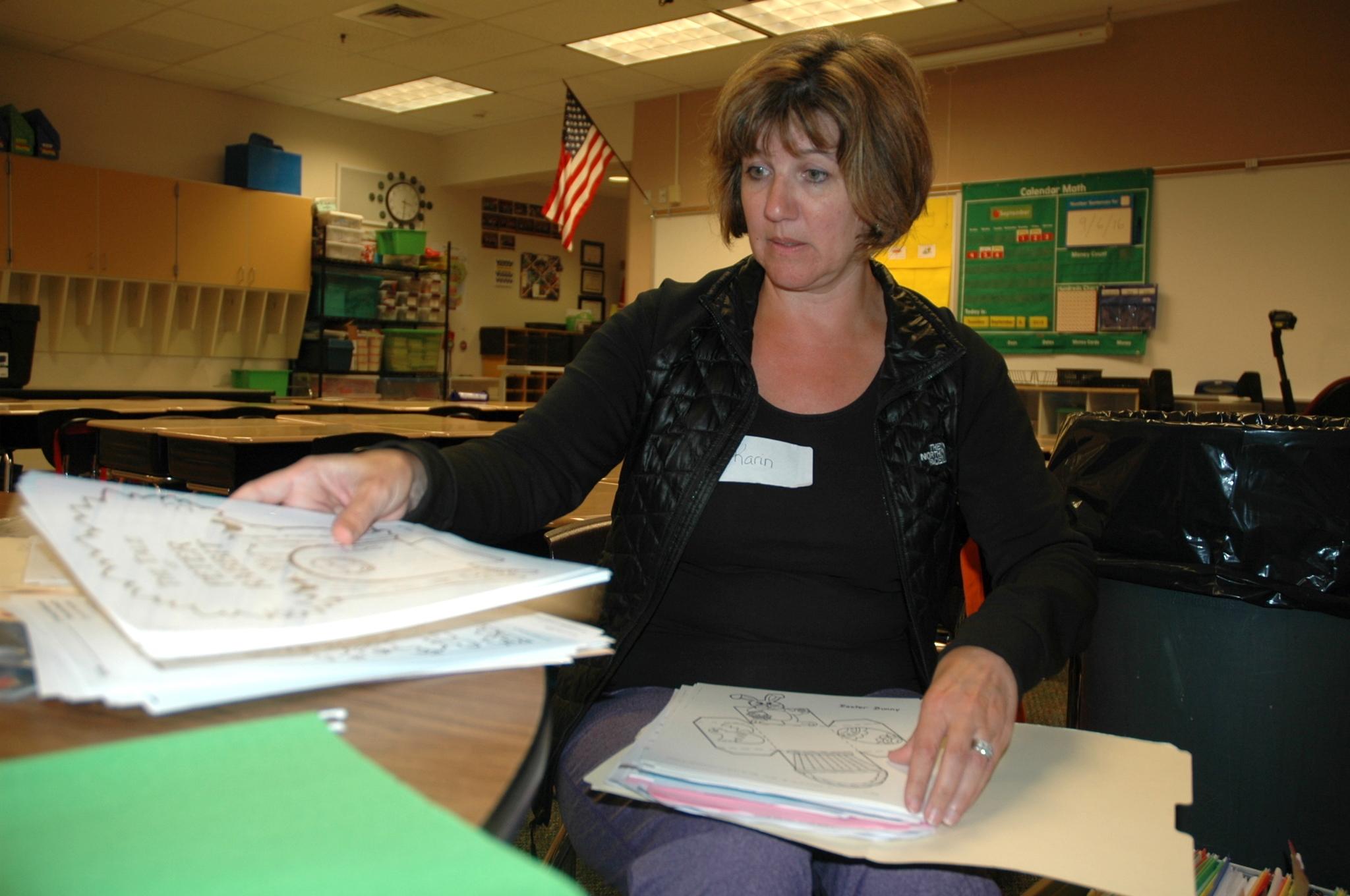ARLINGTON – If you’re the parent of a kindergarten student who can’t help but fret as you prepare to send your child off to school for the first time, rest assured that Arlington teacher Jennifer Jensen knows what you are going through.
“They are going to be loved and cared for and valued and made to feel special,” Jensen said. “It can be scary to hand over your children to someone else. I went through it with two kids of my own, so I understand where you’re coming from.”
Jensen started her career with kindergarten students, and now, five years later, she’s back in a kindergarten class at Presidents Elementary in Arlington.
“What we’re doing in kindergarten is teaching them how to be learners,” Jensen said. “Just last year, we switch from a heavier emphasis on academics toward more of a learning-through-play approach.”
Jensen outlined her students’ three-step play process as “Plan, Do, Review,” in which they plan how they will spend their play time, and they reflect on how it went after they’ve finished.
Across the hall from Jensen, Ann Beckley is heading into her 16th year of teaching kindergarten, out of 23 years as a teacher, but she still learns new things from students each year.
“There are always new firsts,” Beckley said. “The kids come with lots of energy, and you find joy and humor in being with them. Every year, it rekindles my spirit, and I see things through brand new eyes.”
Beckley’s room is festooned with frogs. One is a frog pillow, “who looks for students who sit criss-cross applesauce, because he likes to sit in their laps,” and another is a frog backpack, who likewise keeps his eyes out for well-behaved students, so they can receive awards at the end of the day.
To help their children succeed as students, Beckley recommended that parents make sure kids can perform simple tasks independently.
“Belts can look adorable with the right outfit, but children need to know how to undo and redo them if they’re going to the bathroom,” Beckley said. “When you’re putting together lunches for them, make sure they know how to handle go-gurts and string cheese. Of course, as teachers, we’ll be there to help, but just keep in mind that whatever little tasks you might do for them, they’ll need to do on their own.”
As a mother to three daughters, Beckley also advised parents not to be surprised if their children are a bit tired or cranky in the first few weeks of school.
“It doesn’t mean they don’t like school,” Beckley said. “It just means that they’re giving a hundred percent, as they do this for the first time. Their sleep schedules might need to adjust accordingly.”
Up one flight of stairs, Karin Stringer was going through paperwork the week before she started her 11th year of teaching second grade.
“With five kids of my own in three different schools, I’ve come to recognize that each teacher has their own style of communication with their students’ families,” Stringer said. “In the primary grades, we’re more hands-on. I like to send out newsletters, but by junior high and the higher grades, a number of teachers are sending out emails instead.”
Regardless of which channels they use, Stringer encouraged parents and teachers to maintain open, active lines of communication throughout the school year, so that upcoming school events, the content of in-class lessons and the educational standards for each student are no surprise to their families.
“The important thing is that we’re here to partner with parents,” Stringer said. “We have the same goals. We’re fostering the education and growth of their children, not just academically, but as people.”
In Lakewood, teachers were preaching almost the exact same message as they geared up for the first day of school Sept. 7.
Ricci Winchell has taught kindergarten for three years, all in Lakewood, and she conceded it’s not just her students who are adjusting to attending school, since for many of their parents, it’s their first time sending their children off to class.
“We ask our parents to drop the students off at the doors of the classrooms, so the students can develop their own routines, independently of their parents,” Winchell said.
To ensure the students feel capable on their own, Winchell encouraged parents to dress them in clothes that the children can put on or take off, as needed, throughout the day.
“Whether it’s buttons or belts, make sure they know how to operate their own clothes,” Winchell said. “And be sure to pack an extra set of clothing in their backpacks. We actually put that on our supply lists.”
Beyond that, Winchell noted that kindergarten has shifted more toward social and emotional development than hard-and-fast academic lessons.
“It’s okay to let them play, especially during those first few weeks,” Winchell said. “They can interact and get to know each other, and we will make sure to get to know each student. I feel that’s especially important, so I’ll ask each one what their favorite colors or animals are, so that I have a connection already made with them, to draw upon at a moment’s notice.”
Third-grade teachers Kristal Sherrid and Ashley Bailey know that their students’ parents are more experienced at getting back into the swing of the schoolyear, but they nonetheless advised parents to take the time to establish lines of communication with their teachers.
“You should know exactly what the standards of learning are,” said Sherrid, who keeps in touch with families through newsletters, emails and phone calls, depending on which is most convenient for the parent. “Whatever works to keep parents informed is what I go with.”







